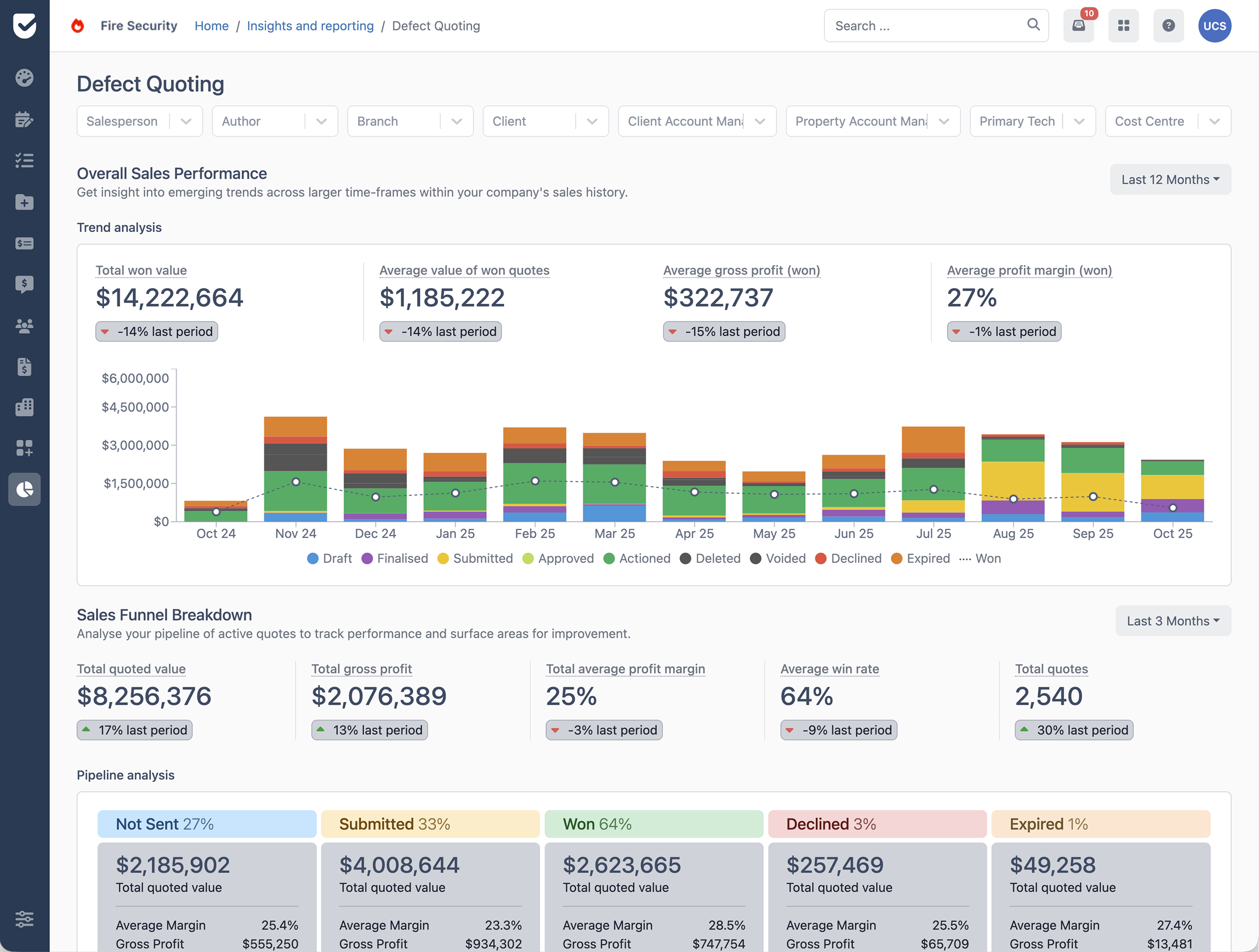What It’s Really Like for Women in the Fire Safety Industry - And How That’s Changing
July 10, 2025
1
min read

The fire safety industry is changing - but not quickly enough. In this episode of The Blueprint, our host Charlotte Austin-Olsen spoke to Andrea White, fire engineer, fire risk assessor, chartered health and safety professional and founder of Women Talking Fire, about the reality for women in the fire safety sector today. She shared how isolation and underrepresentation shaped her early experiences, why visibility matters, and what companies must do if they truly want to build inclusive workplaces.
Andrea’s journey into the fire safety industry and beyond
Andrea didn’t set out to be a fire engineer - she initially wanted to be a forester, and spent four years working with the Forestry Commission.
“That was definitely my happy place,” she said. But after a degree change and time spent caring for family, her path shifted. She found herself working in health and safety in a technical college and later managing care home estates for a local authority.
It was during this period that fire safety first caught her attention. She became frustrated when identically constructed buildings received contradictory advice from different fire officers. “I just couldn’t understand why the same building would result in different fire safety advice,” she said.
Andrea joined the fire service as a technical fire safety inspector, where she was the only woman in her county’s department. After five years there enforcing fire safety legislation, it gave her the grounding to pursue consultancy, earn a master’s degree in fire engineering, and eventually launch her own company, A W Fire Ltd.
Today, she’s also an expert witness in cladding-related civil cases post-Grenfell.
“It really plays to my strengths,” Andrea explained. “I [have] the ability to look at something technical but give you the answer in plain English…Those skills have been beneficial when talking to clients… and to judges as well.”
The turning point: founding Women Talking Fire
As for many others, COVID gave Andrea time to reflect. She was on furlough, planning to start her own consultancy and thinking about how she could give back to the industry.
“[I thought] I can begin to work a little bit less than full time, so I can start to give back more. But what do I actually want to do? What would really benefit the industry?” she said.
One thought kept resurfacing: the loneliness of being one of the only women in the room.
“I remember going to [a conference] in Kent. I was about to open the door, and I knew there would be maybe 150 people in there,” she recalled.
“I knew that there would be no other women in the room, and there wasn’t.”
Determined to change that, Andrea found other female fire engineers on LinkedIn and set up a monthly video call with them during COVID.
“They were an absolute scream,” she said, “But I thought this is different - I’ve not had these kinds of conversations with anybody in the industry before, because I’ve only ever talked to men”.
“[I thought] I want more of this. And if I feel like this, maybe other women who I haven’t met yet feel like this too.”
After setting up women’s groups within the Institution of Fire Engineers (IFE) and the Chartered Association of Building Engineers (CABE), it felt right to have an independent group. And that’s when, two years ago, Andrea set up Women Talking Fire - an independent, inclusive support network for women and male allies in fire safety. Its two goals are clear:
- Support and networking for women and male allies working in the fire safety industry
- To increase representation and visibility of women in technical and leadership roles within the industry
“Women are about 10% of technical professionals in our industry,” Andrea said. “I was very aware that we were challenging norms [in what we were doing].”
The power of visibility
Andrea shared how seeing women speak on technical panels or feature in industry publications is still rare, and how important it is for women to see themselves reflected in leadership roles. She reflected on the feedback she got when she was asked to speak at the IOSH Fire Risk Management Conference.
Women emailed her to say that they’d never seen a woman give a technical talk before.
“[Someone said] ‘That was the first time I’d seen a woman talking technical… I can relate to that.’”
This is why Women Talking Fire works with industry expos to make sure women are on stage and featured in trade publications. “If you can see it, you can be it,” Andrea advocates.
“When you flip through a magazine, we want you to be able to see people who look like [us]...writing in the magazine, or when you go to a conference, you want to see people on stage who look like us.”
Women Talking Fire’s presence at expos is always well received. “Our stand is always really busy,” she comments.
“We always have a huge cohort of women who seek us out to find the other women”.
“…..[but] if you don’t have that stand, where are we going to find each other…in that great big hall?”
What still needs to change
At one of the expos that Women Talking Fire attended, they ran a survey to find out what the industry thought of them.
“One of the questions we asked was ‘Is there a need for this kind of group?’,” Andrea explained.
“The answer we got from women was 100% yes, and they would tell us why”.
“We had some men respond and all but one of them said no, they don’t think there’s a need for this group because we’ve got equality now.”
While Andrea acknowledged that there are issues that men face that should be dealt with, she explained that her focus is based on her experience and she understands why men may find it hard to understand the problems that women face in the industry.
“It’s difficult to put yourself in somebody else’s shoes,” she said. “I do have some sympathy for that.”
So while there are more women in the fire industry than ever before and we are moving closer to equality, there are still plenty of things that need to change:
Address the empathy gap
Whilst it can be difficult to put yourself in someone else’s shoes, it’s not impossible. Andrea thinks that there should be more focus on empathetic listening and education around the issues that women face in the fire industry.
Many male colleagues still struggle to grasp the lived experiences of women in the field. This was clear when Andrea was mentoring a male engineer.
“We would chat several times a week… we had some great conversations, but when I tried to talk to him about anything about me as a woman in the industry, he just looked at me blankly and said ‘Andrea, I just don’t see it.’ That wasn’t his world.”
Andrea believes that we need to get to a point where we can empathise with each other’s situations.
“[We need to say] ‘Your experience is not my experience, but I hear you and I can accept that what you’re saying may be true… It might not be my experience, but it is an experience that someone is having.’”
Move from presence to participation
Having women in the room isn’t enough if they aren’t being heard. Andrea has sat on technical committees where she’s been ignored or sidelined.
“Men do communicate differently. They’re more happy to interrupt, they’re more confident,” said Andrea.
“I would just like to see…how we can support [women] to have that equal footing.”
In a male-dominated room, it can be hard for women to have the confidence to speak up. More could be done to check that participants are supported so they can feel comfortable in contributing to the discussion.
“It’s more than just having their name on the list - it’s actually about having them as an active participant in that group.”
End tokenism - commit for the long term
Andrea shared that there is still a lot of tokenism in the industry, where companies or industry bodies start conversations to ‘tick a box’ but never follow through.
“Gender-related programmes or initiatives can be a bit of a flash in the pan,” Andrea said.
“I think that’s a shame because we are here for the long haul.”
She shared her disappointment after taking part in a video call about getting more women Fellows into IOSH. “It was a great video call… with a lot of engagement and enthusiasm…..then it died a death,” she said.
“I don’t know which is worse - not organising those discussions, or getting people’s hopes up and not following through.”
Rethink policies that unconsciously penalise women
Workplace policies like mandatory overnight stays or rigid hours disproportionately affect caregivers, especially single parents - and they’re often women. Andrea described turning down a role because it didn’t allow home working - not as a perk, but a necessity.
“I couldn’t manage to do 35-40 hours a week in the office and commute [in this new job]”.
“I asked if I could work from a home a couple of days a week and they said ‘No, that’s not our office policy’… There wasn’t even a discussion about it.”
“I think we could also do better in terms of inclusivity and reasonable adjustments,” she said.
Advice for women entering the fire safety industry
Andrea’s advice was clear: “Go where you’re celebrated, not where you’re tolerated.”
She urges new entrants to:
- Join networks like Women Talking Fire
- Build relationships with sponsors and mentors
- Be vocal about your ambitions and achievements
- Remember that technical performance is just one part of career success
- Start networking early - Andrea said “If I were doing it again, I’d network earlier”.
What’s next for Women Talking Fire?
Now with over 600 members, the group is growing rapidly. Andrea and her team are launching Women Talking Fire 2.0, with:
- A rebrand and a refreshed website
- Sponsorship from Halma and Kiwa
- Plans for another WTF technical conference in June 2026 in Winchester
- Active collaboration with expos like the Fire Safety Event and publications like Fire Buyer and Fire Risk Management Journal to improve representation
Andrea’s story reflects just how far the fire safety industry has come - and how much work is left to do. Her work with Women Talking Fire is already reshaping the experience of women in the field, proving that real change comes from community, visibility and persistence.
What is fire inspection software?
Fire inspection software is a digital tool that helps fire protection businesses complete, record, and manage inspections more efficiently. Instead of relying on paper checklists, technicians can use a mobile app to document assets, capture photos, log defects and generate professional reports on the spot.
How does fire inspection software work?
Fire inspection software programs such as Uptick allow technicians to complete inspections on-site using a tablet or phone, capture photos, log defects and generate instant reports. In the office, teams can schedule jobs, send quotes, track maintenance tasks and access real-time visibility across every building and asset. Fire inspection software systems bring your entire workflow together so nothing falls through the cracks.
Who uses fire inspection software?
Mainly fire inspection companies use fire safety software to coordinate inspections and maintain life-safety assets.
How does fire safety inspection software improve compliance?
Uptick ensures technicians follow the correct steps every time, reducing human error and creating consistent records aligned with standards. With asset-based inspections, automated reminders,a full audit history, and in-built compliance reporting, Uptick’s fire safety management software makes compliance easier for you and more transparent for your customers.
Can fire inspection software replace manual checklists?
Absolutely. Digital checklists, mobile inspection forms and automated workflows mean you no longer need printed paperwork. Using fire protection inspection software helps you avoid missing fields, lost forms and manual retyping, saving hours of manual work each week.
Can I customise inspection forms?
Yes. Uptick lets you customise forms to match your local standards, business processes and customer needs. With configurable templates and digital form builders, you can design exactly what your technicians need
How do I choose the best fire inspector software for my business?
Look for a platform built specifically for fire protection. Check ease of use, mobile performance, offline mode, compliance features, integration options and customer support. The best fire inspection software gives you room to grow, not just tools to get by.
How much does fire inspection software cost?
Our pricing model is based on a monthly pay-per-user fee. Customer and sub-contractor licenses are unlimited and free.
What else do you need to know?
How long does it take to get started with Uptick?
The biggest factors determining the length of the onboarding process are:
- The size of your team and their training requirements
- The quality and ease of export of your data
Most companies can get up and running within 2 months.
What platforms and devices does Uptick work on?
Uptick lives in the cloud. That means Uptick is available for your desk/office users on any device (Mac, PC or Linux) via your browser with no additional software downloads.
For your field licenses, on-site staff can use either Apple or Android devices. Our fire safety management app is available in the App store on Apple devices, and the Google Play store on Android devices.
How does Uptick compare to other products?
Uptick is the only modern cloud-based solution that is purposely built for the fire protection industry.
Many alternative solutions are either generic job management platforms that you will need to tailor to your business and/or do not have the same modern cloud-based capabilities.
How does Uptick protect and secure my data?
Uptick takes data security seriously. Our customers include some of the largest companies in the industry. As we work directly with government and banking clients we have have successfully passed through rigorous security auditing and penetration testing.
In addition to being secure, we work hard to provide a reliable service. Customers on Uptick can expect an uptime of 99.95% (including scheduled maintenance). This translates to an average of less than 5 minutes of business-hour downtime per month for office users and no downtime for technicians. If you're a large enterprise and want monetary guarantees around reliability, we offer dedicated hosting and Uptick Support SLAs.
How does Uptick pricing work?
Uptick charges a simple per-user monthly fee for each of your desk and field users. Customer and sub-contractor licenses are unlimited and free.
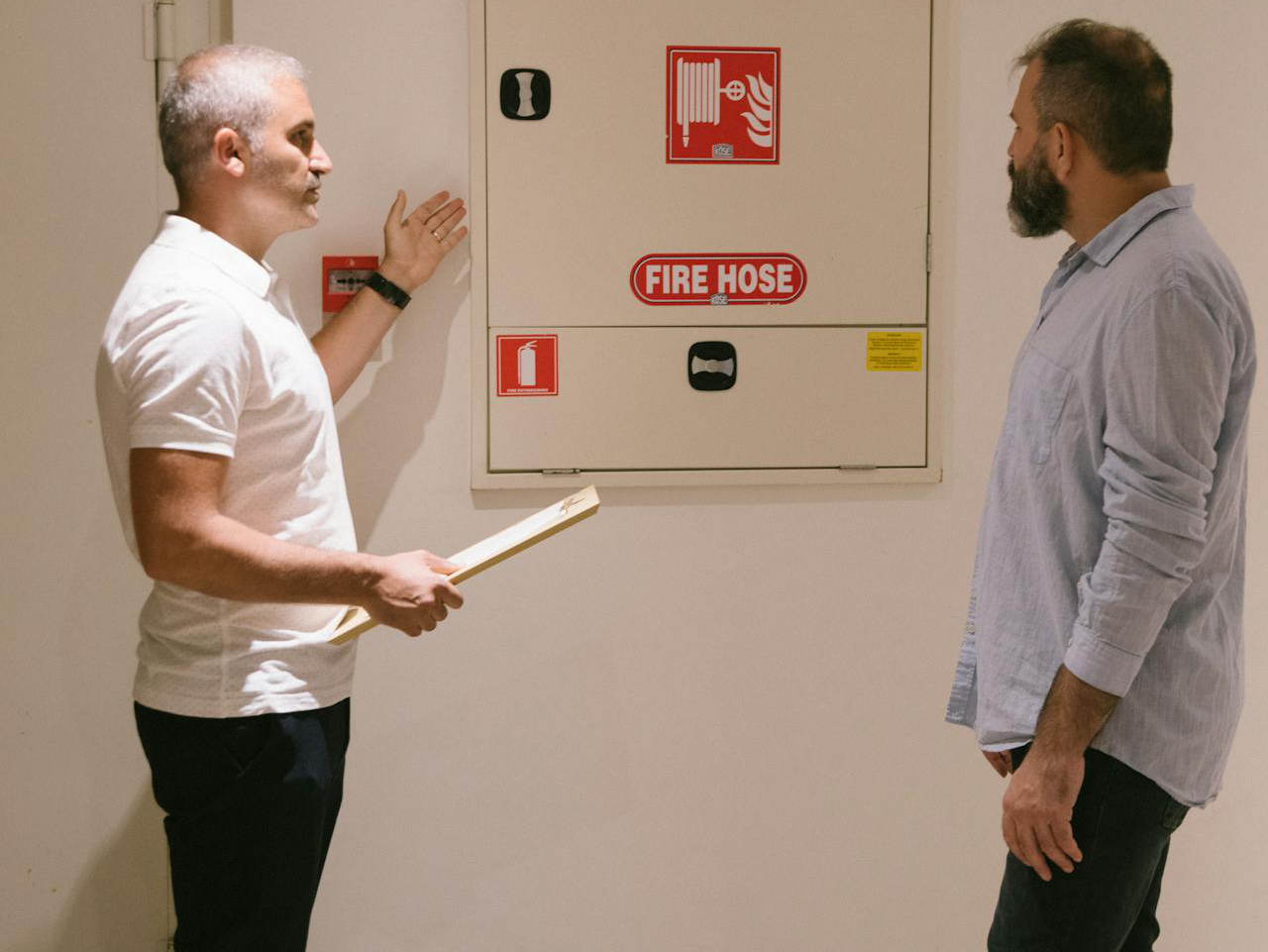
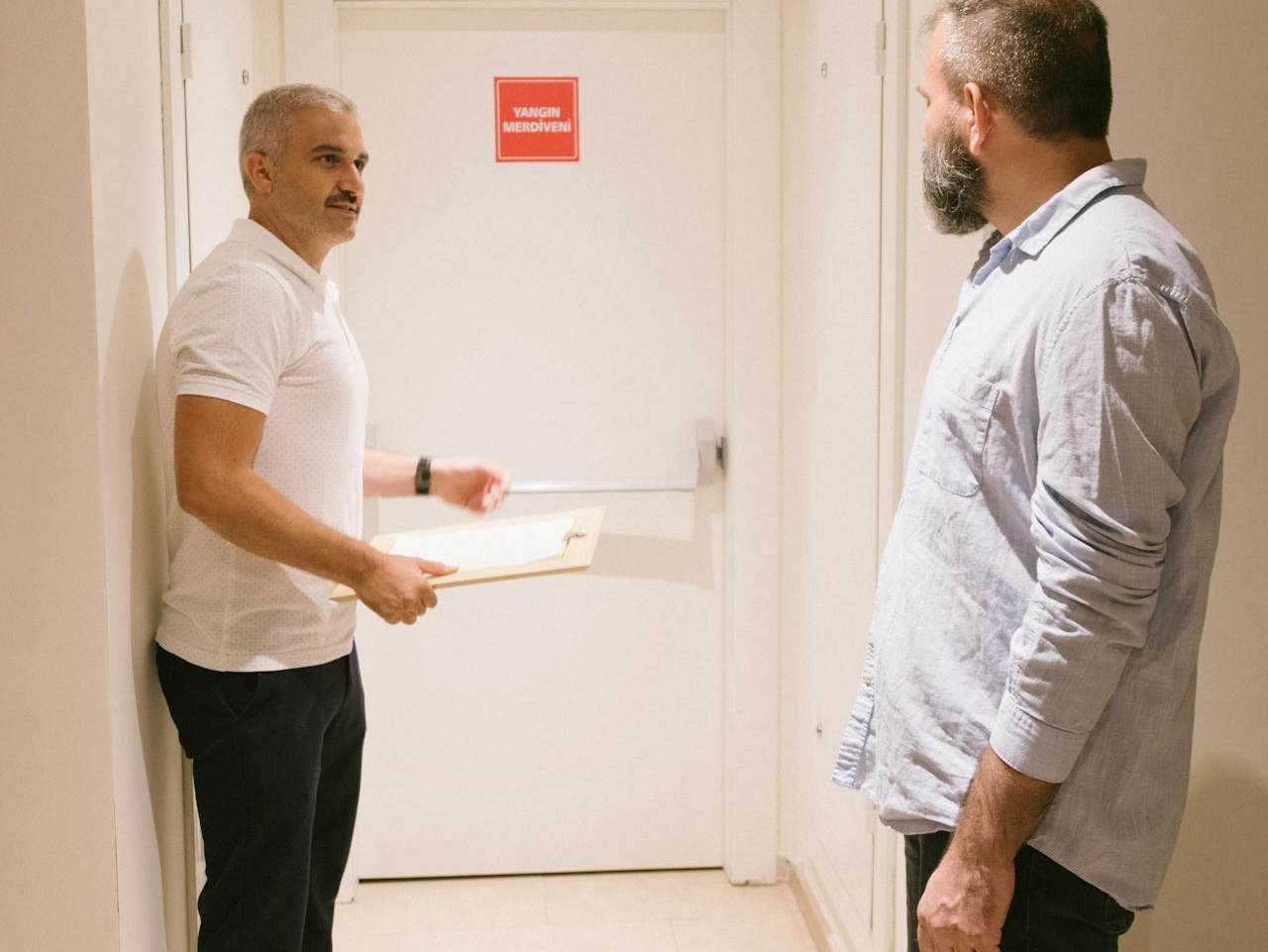
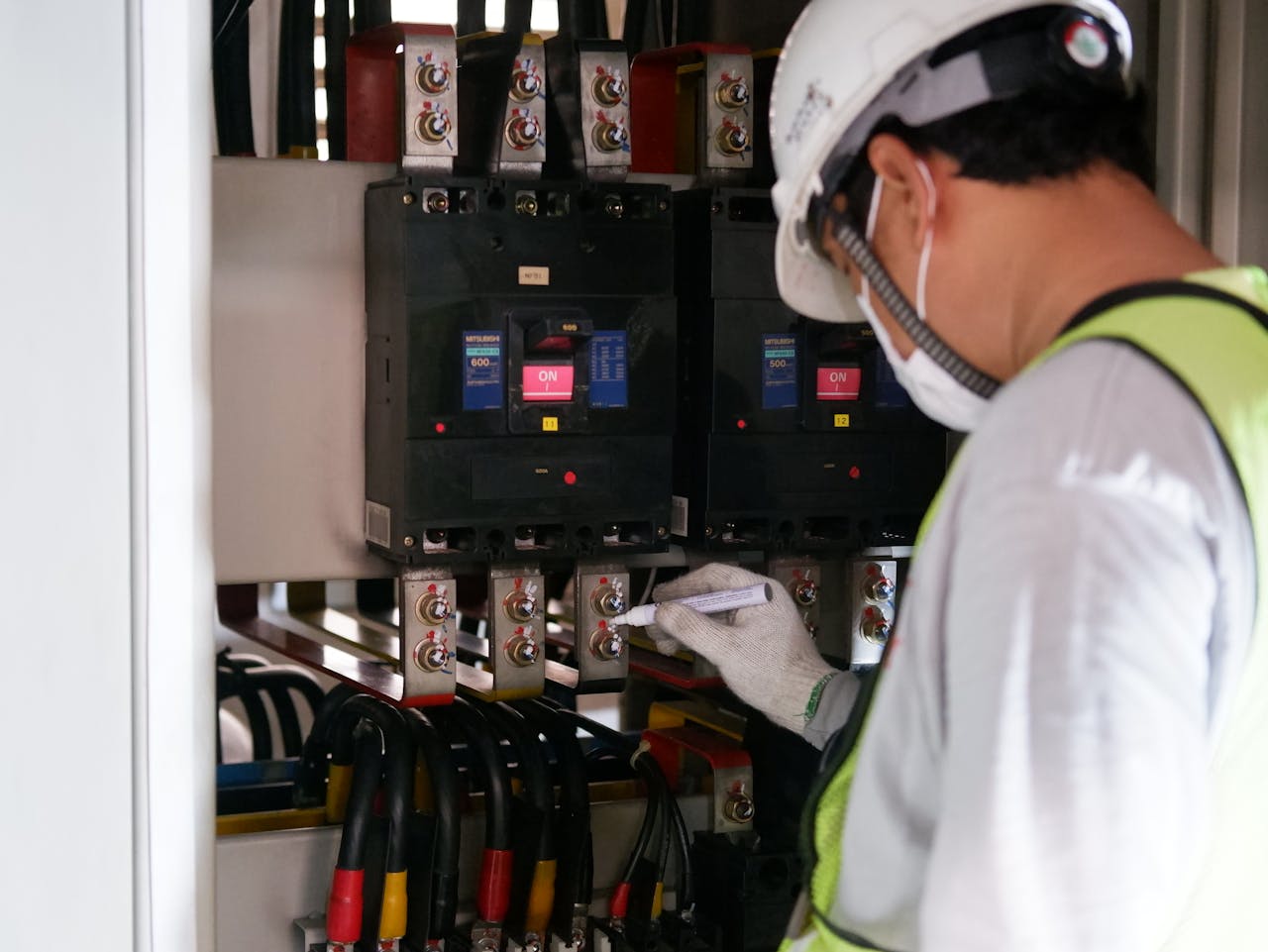
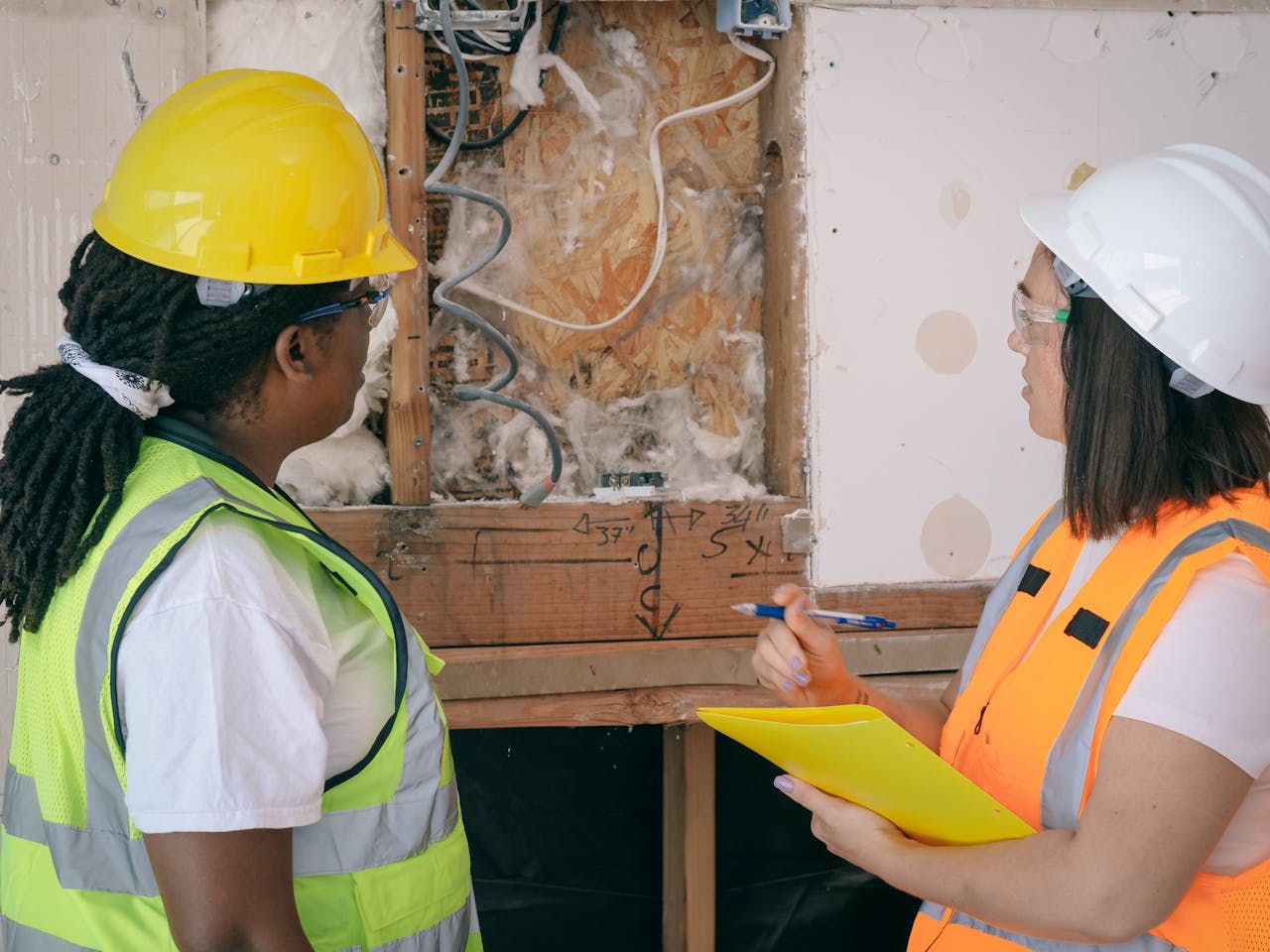







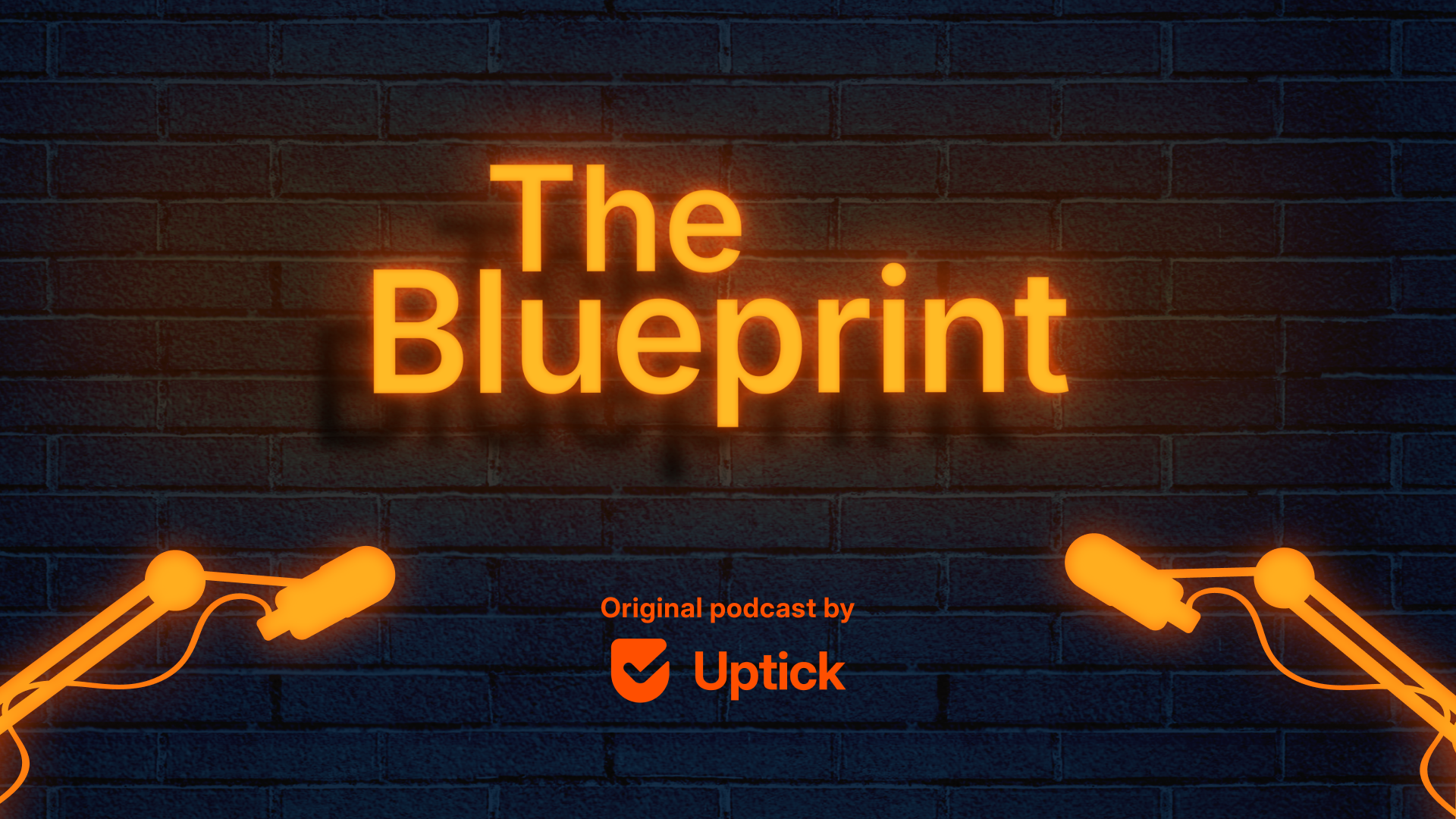






.png)


